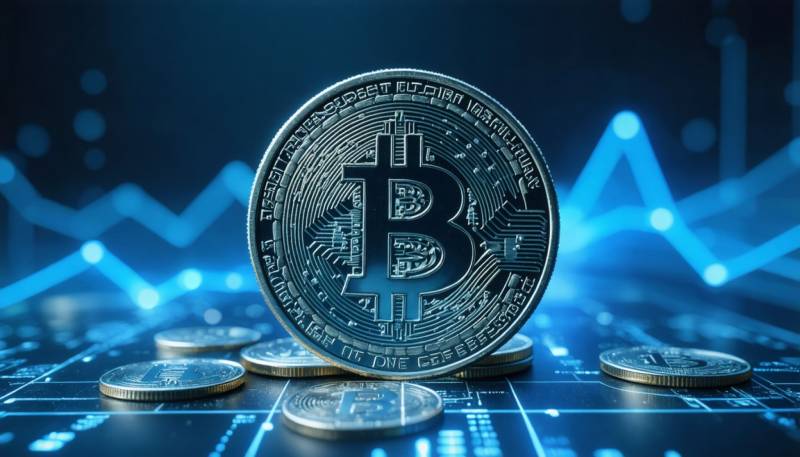 |
|
 |
|
 |
|
 |
|
 |
|
 |
|
 |
|
 |
|
 |
|
 |
|
 |
|
 |
|
 |
|
 |
|
 |
|
Cryptocurrency News Articles
The Rise and Fall of Binance: How the Crypto Giant Became the Most Legally Challenged Exchange on the Planet
Feb 22, 2025 at 10:55 pm
By early 2025, Binance had amassed an estimated 250 million users and processed a mind-boggling $100 trillion in trading volume. The exchange handles over $21 billion in digital asset trades daily—more than many traditional stock exchanges.

Binance's legal troubles continue to unfold across the globe, highlighting the challenges faced by the crypto giant in navigating diverse regulatory landscapes. A recent development in the US証券取引委員会 (SEC) lawsuit against Binance has brought a glimmer of hope for the exchange.
Binance and the SEC filed a joint motion to pause their high-stakes legal battle for 60 days, a move that could potentially pave the way for an out-of-court settlement. The motion cites the SEC's new crypto task force, led by Commissioner Hester Peirce, which may "impact and facilitate the potential resolution of this case."
If Binance can secure a favorable outcome in the US, it would mark a significant victory for the exchange, especially considering the $4.3 billion in penalties it paid to the Department of Justice in 2023 for violating anti-money laundering laws.
However, Binance's regulatory marathon is far from over. French authorities have launched a sweeping investigation into the exchange for alleged money laundering and tax fraud. In the UK, Binance still faces operational restrictions, and Nigeria is demanding an $81 billion penalty from the crypto giant.
Binance's Rise to Crypto Supremacy
Founded in 2017, Binance quickly ascended to become the undisputed titan of the crypto world. By early 2025, the exchange had amassed an estimated 250 million users and processed a mind-boggling $100 trillion in trading volume.
Binance handles over $21 billion in digital asset trades daily—more than many traditional stock exchanges. The platform's vast liquidity and low trading fees have made it the exchange of choice for millions of traders worldwide.
Binance captured a large portion of the new investors entering the market during the 2017 cryptocurrency boom. While competitors struggled with clunky interfaces, Binance offered a streamlined trading experience that appealed to both novices and veterans.
As of December last year, Binance commanded more than 33% market share in each of the months through 2024.
But Binance's unique selling proposition went beyond just offering an exchange; it built an entire ecosystem. The launch of Binance Smart Chain in 2020 transformed the platform into a development hub where teams could build decentralized applications and financial products. This created a virtuous cycle—more developers meant more products, which in turn attracted more users and generated greater fees.
Finally, Binance's aggressive global expansion strategy was equally crucial to its success. While US exchanges like Coinbase focused primarily on regulated markets, Binance pursued a ‘move fast, ask forgiveness later’ approach, quickly establishing footholds in emerging markets across Asia, Africa, and Latin America.
Binance's Legal Whack-a-Mole
As Binance conquered the crypto world, it inadvertently created another record: becoming the most legally challenged exchange on the planet.
The list of countries where Binance has faced regulatory scrutiny reads like a United Nations roll call. The company has battled authorities in at least 10 countries between 2021 and 2025, with allegations ranging from operating without proper licenses to facilitating money laundering.
The United States delivered the most punishing blow in 2023, when Binance and founder Changpeng Zhao (CZ) pleaded guilty to violating anti-money laundering laws. The price tag? A staggering $4.3 billion settlement. CZ served four months in prison and stepped down as CEO—a humbling fall for crypto's most recognizable figure.
That was just one front in a multi-continental legal war.
In France, prosecutors recently launched an investigation into alleged money laundering and tax fraud by Binance between 2019 and 2024. The UK's Financial Conduct Authority banned Binance from conducting regulated activities back in 2021. Nigeria detained Binance executives over currency manipulation allegations. Australia's securities regulator took legal action against Binance's derivatives arm for misclassifying retail clients as wholesale investors.
The common thread? Regulators repeatedly cited Binance's rapid growth outpacing its compliance infrastructure.
The exchange's decentralized structure—operating without a traditional headquarters—initially helped it evade regulatory oversight. That strategy eventually backfired, fuelling suspicions that Binance was deliberately avoiding accountability.
"As we scaled from six team members to thousands, there were gaps in compliance," current CEO Richard Teng told Cointelegraph, calling these "historical issues" the company is working to resolve.
Why the US Market Still Matters
For all its global dominance, Binance's willingness to pay a $4.3 billion fine and sacrifice its founder to resolve US legal issues reveals an uncomfortable truth: America remains the kingmaker in crypto.
Firstly, the US has an established channel for institutional capital. Wall Street's growing interest in digital assets means billions in potential trading volume, but these established players demand regulatory clarity before committing. A Binance without US regulatory blessing would be locked out of this lucrative opportunity.
Second, the US dollar remains crypto's primary on-ramp
Disclaimer:info@kdj.com
The information provided is not trading advice. kdj.com does not assume any responsibility for any investments made based on the information provided in this article. Cryptocurrencies are highly volatile and it is highly recommended that you invest with caution after thorough research!
If you believe that the content used on this website infringes your copyright, please contact us immediately (info@kdj.com) and we will delete it promptly.






















































